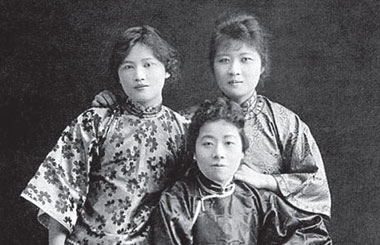Chinese FM statement on settling disputes between China, the Philippines in South China Sea through bilateral negotiation
Updated: 2016-06-08 09:52
By ZHANG YUNBI(chinadaily.com.cn)
|
|||||||||
III. The Philippines' unilateral initiation of arbitration goes against the bilateral agreement on settling the disputes through negotiation and violates the provisions of UNCLOS
The South China Sea arbitration was unilaterally initiated by the Philippines. In doing so, the Philippines has turned its back on the agreement reached and repeatedly reaffirmed by China and the Philippines on settling the relevant disputes in the South China Sea through negotiation and violated its own solemn commitment in the DOC. This is a violation of the principle of Pactasuntservanda and an abuse of the UNCLOS dispute settlement procedures. It goes against international law, including UNCLOS.
First, by unilaterally initiating the arbitration, the Philippines has violated its agreement with China to settle the relevant disputes through bilateral negotiation. In relevant bilateral documents and the DOC, China and the Philippines have agreed to settle through negotiation their disputes in the South China Sea and reaffirmed this agreement many times. The above bilateral documents between China and the Philippines and relevant provisions in the DOC are mutually reinforcing and constitute a binding agreement, by which both sides have chosen to settle the relevant disputes through negotiation. The Philippines' breach of its own solemn commitment is a deliberate act of bad faith.
Second, by unilaterally initiating the arbitration, the Philippines has violated the right, as provided for in UNCLOS, of a State Party to UNCLOS to choose the means of dispute settlement of its own will. Article 280 of Part XV of UNCLOS stipulates that: "Nothing in this Part impairs the right of any States Parties to agree at any time to settle a dispute between them concerning the interpretation or application of this Convention by any peaceful means of their own choice." Article 281 of UNCLOS provides that: "If the States Parties which are parties to a dispute concerning the interpretation or application of this Convention have agreed to seek settlement of the dispute by a peaceful means of their own choice, the procedures provided for in this Part apply only where no settlement has been reached by recourse to such means and the agreement between the parties does not exclude any further procedure". Given that China and the Philippines have made an unequivocal choice to settle the relevant disputes through negotiation, and have excluded third party settlement procedures, including arbitration, the third party dispute settlement procedures stipulated by Part XV of UNCLOS is thus non-applicable in this regard.
Third, by unilaterally initiating the arbitration, the Philippines has breached Article 283 of UNCLOS regarding the duty of exchange of views. The Philippines deliberately misrepresents certain consultations with China on maritime affairs and cooperation, all of a general nature, as negotiations over the subject-matters of the arbitration, and uses this as an excuse to claim that bilateral negotiations have been exhausted. This is despite the fact that the two States have never engaged in any negotiation on those subject-matters. Such claim made by the Philippines is fundamentally contrary to facts, and must have been made with ulterior motives.
IV. China will adhere to the position of settling the relevant disputes with the Philippines in the South China Sea through negotiation
China is a major force for upholding peace and stability in the South China Sea. China is a staunch supporter of the purposes and principles of the UN Charter. It is committed to upholding and promoting international rule of law and shall always respect and act in accordance with international law. While firmly safeguarding its territorial sovereignty and maritime rights and interests in the South China Sea, China adheres to the position of settling disputes through negotiation and consultation and managing differences through relevant rules and mechanisms. China endeavors to achieve win-win outcomes through mutually beneficial cooperation, and is committed to making the South China Sea a sea of peace, cooperation and friendship.
On issues concerning territory and maritime delimitation, China does not accept any means of dispute settlement imposed on it; nor does China accept any recourse to third party settlement. The door of China-Philippines bilateral negotiation is always open. China will remain committed to settling through negotiation the relevant disputes with the Philippines in the South China Sea on the basis of respecting historical facts and in accordance with international law. China urges the Philippines to immediately cease its wrongful conduct of pushing forward the arbitral proceedings, and return to the right path of settling the relevant disputes in the South China Sea through bilateral negotiation with China.
Contact the writer at zhangyunbi@chinadaily.com.cn.
Related Stories
Ruling won't calm disputes in South China Sea 2016-06-07 07:39
More countries support China's stance on South China Sea issue: FM 2016-06-06 21:07
China-US common interests transcend South China Sea disputes 2016-06-06 10:36
Military scholar: 'Low-key' best for South China Sea 2016-06-06 00:11
Today's Top News
Xi urges Washington to boost trust
Council of Europe unveils security convention
Former PM warns of chaos in case of Brexit
Basic income plan rejected by Swiss voters
Eyeing the goal in European football
Suddenly, it's a small world
China looking forward to trade talks with EEU: MOC
Russia to promote EAEU-China economic cooperation
Hot Topics
Lunar probe , China growth forecasts, Emission rules get tougher, China seen through 'colored lens', International board,
Editor's Picks

|

|

|

|

|

|







